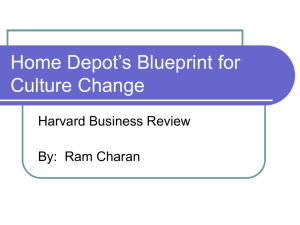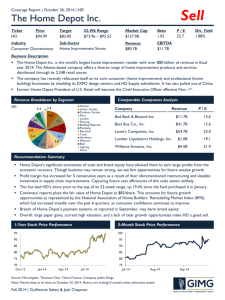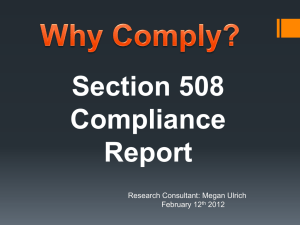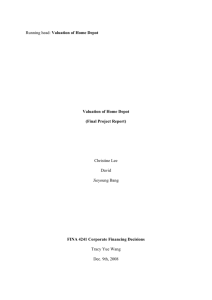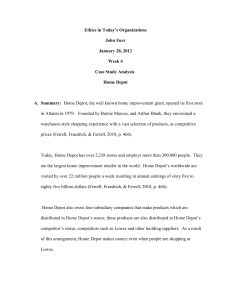File
advertisement
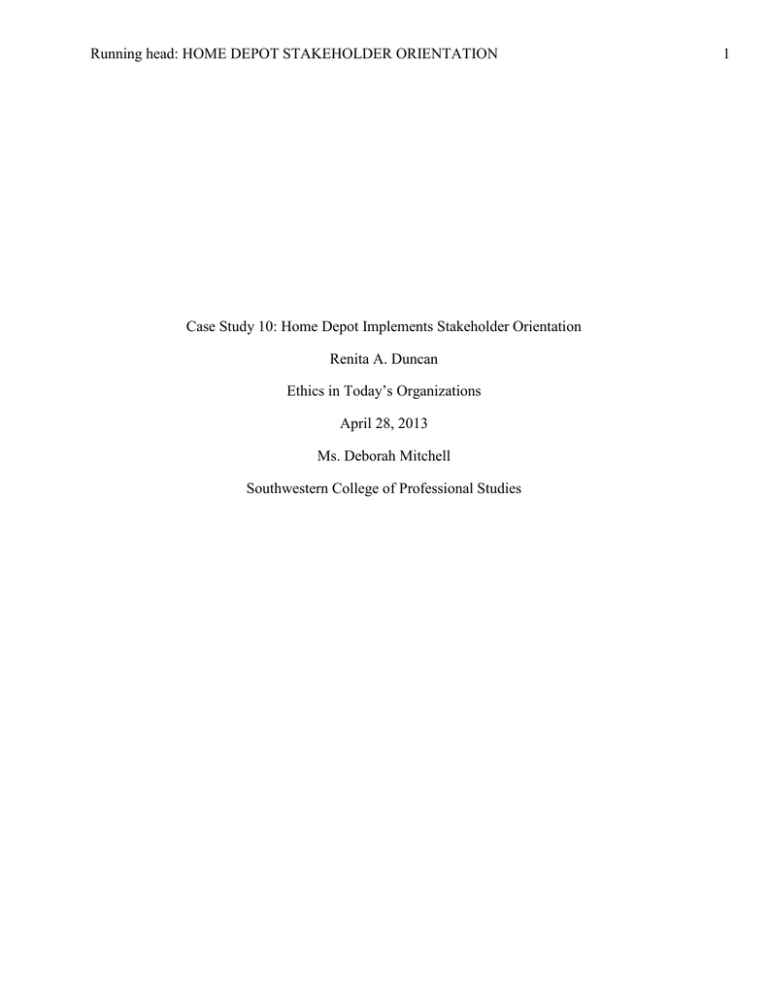
Running head: HOME DEPOT STAKEHOLDER ORIENTATION Case Study 10: Home Depot Implements Stakeholder Orientation Renita A. Duncan Ethics in Today’s Organizations April 28, 2013 Ms. Deborah Mitchell Southwestern College of Professional Studies 1 HOME DEPOT 2 Environmental Stakeholders When it comes to being environmentally aware we are all stakeholders, not just the customers, but society as a whole. I would say that the Home Depot took the lead in environmental issues from its foundation on the basis of power because the co-founders “nurtured a corporate culture that emphasized social responsibility” (Ferrell, Fraedrich, Ferrell, 2011, p. 408). One way they did this was to begin their environmental program in 1990. They were proactive in understanding the importance of being environmentally aware by using recycled materials for wallboard and packaging in their stores and even though they had issues in 1999 because of the wood harvested from the older growth forests they came back a year later to change public opinion of their brand. They actually took the lead in ensuring that these rain forests would be safe and challenged others to do the same. I believe that Home Depot has an excellent strategy for their environmental principles and the way it is communicated to their employee stakeholders is excellent. They have outlined their environmental principles and communication and leadership example is one of the best ways to ensure that the corporate culture of one of social responsibility and addressed the urgency of need to all of us as stakeholders. Justifying their Philanthropy budget I would say that Home Depot could definitely justify the budgeting they use for philanthropy in their ventures. They have openly stated in that social responsibly is a top priority for their company. They have communicated this policy in their written principles. Their philanthropic initiatives affect all stakeholders and the local communities in which they service. They are also staying within the realm of their business practices and focuses on what makes HOME DEPOT 3 them unique. They do have a debt issue so they might be able to still support the communities but they may have to contribute less. I believe that they could also do some work in the area of battered spouses or those escaping from abusive relationships and trying to get back on their feet. This could really hit close to home as many of these relationships are hidden and most people would definitely attempt to get out of them if they had an avenue in which to escape. Home Depot’s Recessionary Strategy Home Depot actually made a good decision to eliminate debt by deciding not to expand and unfortunately cutting jobs. The strategy they used was good because it allowed them not to incur further debt. Many may believe that paying bills out of the revenue is not a good idea, but I would say it does give you better net profit accountability. They are better able to know their net worth when they do this. I also believe suspending the buyback policy was a good idea temporarily, but they should consider with the new economy bringing that back. I would recommend focusing more on internet business. I believe that technology is such that people no longer go out to shop for things that they can order on line, this would help in their expansion initiative for they don’t have to look storefront locations, but more suppliers and shipping which would reduce costs in staffing as well as the other costs associated with operating a warehouse. They are headed in the right direction with their technology initiative so I would suggest that they continue to focus on that area for expansion. HOME DEPOT 4 References Ferrell, O. C., Fraedrich, J., & Ferrell, L. (2011). Business ethics: ethical decision making and cases (9th ed.). Mason: Erin Joyner.
